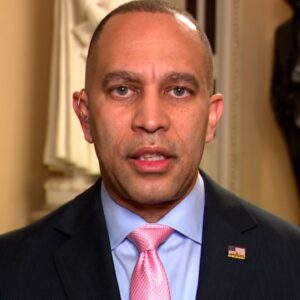One vendor says a US$500,000 wholesale order was cancelled without warning after the products had already been manufactured.
The orders for beach chairs, scooters, air conditioners and other merchandise from multiple Amazon vendors were halted after Trump’s April 2 announcement that he planned to levy tariffs on more than 180 countries and territories, including China, Vietnam and Thailand, the people said. The timing of the cancellations, which had no warning, led the vendors to suspect it was a response to tariffs.
An Amazon representative declined to comment. The company identified international trade disputes as a risk factor in its annual report released in February. “China-based suppliers provide significant portions of our components and finished goods,” the company said.
It was unclear how widespread the cancellations were and how many types of merchandise they affected.
One vendor who has been selling beach chairs made in China to Amazon for more than a decade received an email from the company last week that said it was cancelling some purchase orders it placed “in error” and instructed the vendor not to ship them. The email, which was reviewed by Bloomberg, did not mention tariffs.
The vendor said the US$500,000 wholesale order was cancelled after the chairs had already been manufactured, leaving this person on the hook to pay the factory and find other buyers. The vendor, who spoke on condition of anonymity for fear of retaliation from Amazon, said the company had never cancelled one of its orders in such a manner.
Scott Miller, a former Amazon vendor manager who now works as an e-commerce consultant, said Amazon cancelled orders for merchandise made in China and other Asian countries from several of his clients. The cancellations came without warning, he said, and could force vendors to renegotiate terms with the e-commerce company.
“Amazon really holds all of the cards,” said Miller, founder and CEO of pdPlus in Minneapolis. “The only real recourse vendors have is to either sell this inventory in other countries at lower margins or try to work with other retailers.”




